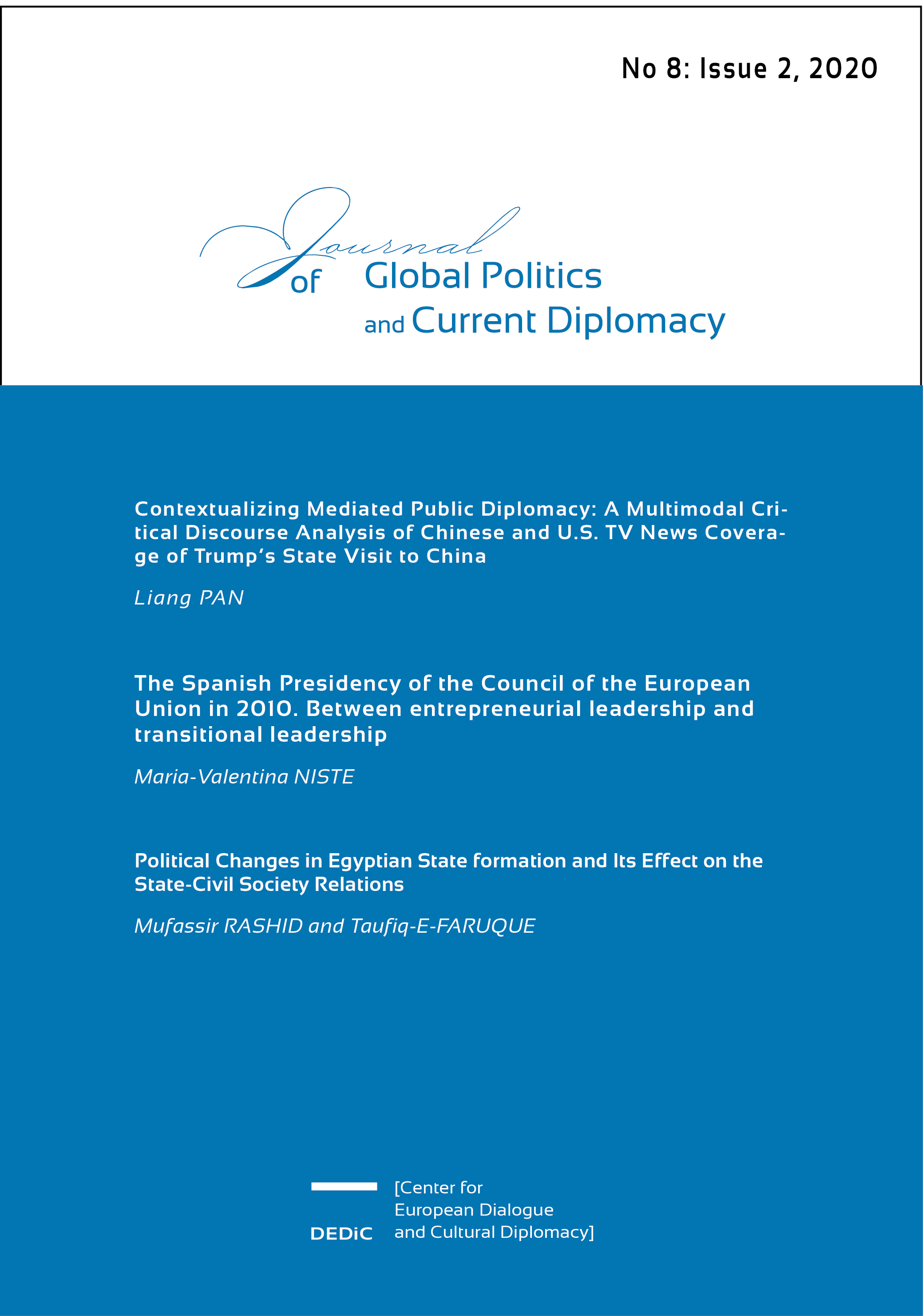Political Changes in Egyptian State Formation and Its Effect on the State-Civil Society Relations
Political Changes in Egyptian State Formation and Its Effect on the State-Civil Society Relations
Author(s): Mufassir Rashid, Taufiq-E FaruqueSubject(s): Human Rights and Humanitarian Law, Civil Society, Governance, Government/Political systems, Present Times (2010 - today), Peace and Conflict Studies
Published by: Centre of European Dialogue and Cultural Diplomacy
Keywords: State formation; State-Civil Society Relations; Egypt; political Changes; Arab Spring;
Summary/Abstract: From the Mamluk Empire to British rule, Egypt had gone through political changes in its pursuit of state formation; even after independence, the pro-cess didn’t stop. Independent Egypt has always been a military-dominated state. When this authoritative domination came in touch with globalization, people started to cherish their dream of Democratization. This also led Egypt to witness its own ‘Arab Spring’. For a little time, Egypt has enjoyed its democracy but again with the coming of Sisi in power, military domina-tion again became visible. At the same time, Civil society always struggled for its place and function in Egypt under authoritarian rulers, and the ruler’s tendency to keep his citizens in check created very rigid relations with the civil society. This paper aims to understand the political changes in state formation in Egypt, the inception of Civil society in Egypt, and the relation between state and civil society. This paper will also try to explain this ‘state-civil society’ relation from the theoretical point of view and would like to understand the reason behind such relations through analysing the political changes Egypt experience from the past century till today.
Journal: Journal of Global Politics and Current Diplomacy
- Issue Year: 8/2020
- Issue No: 2
- Language: English

